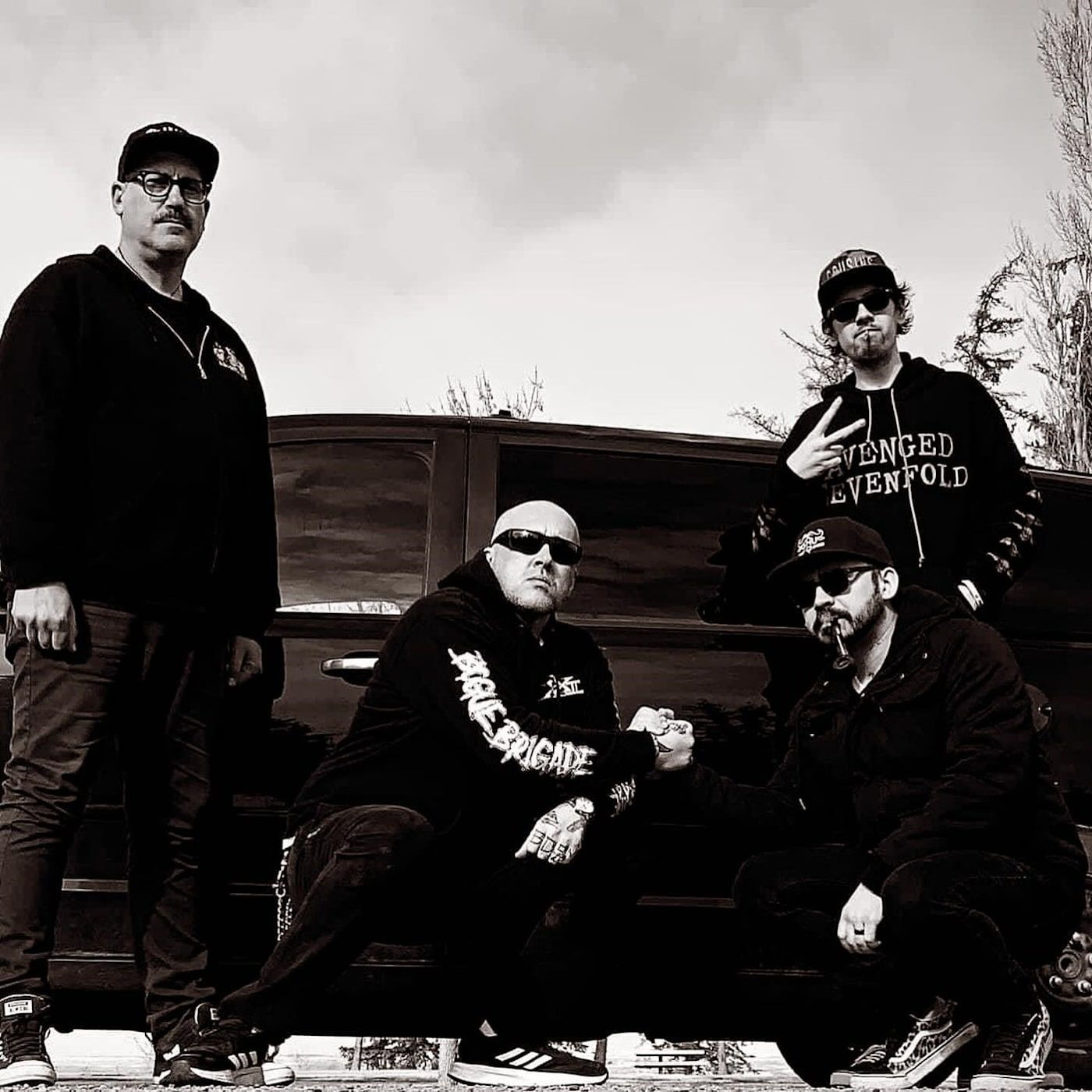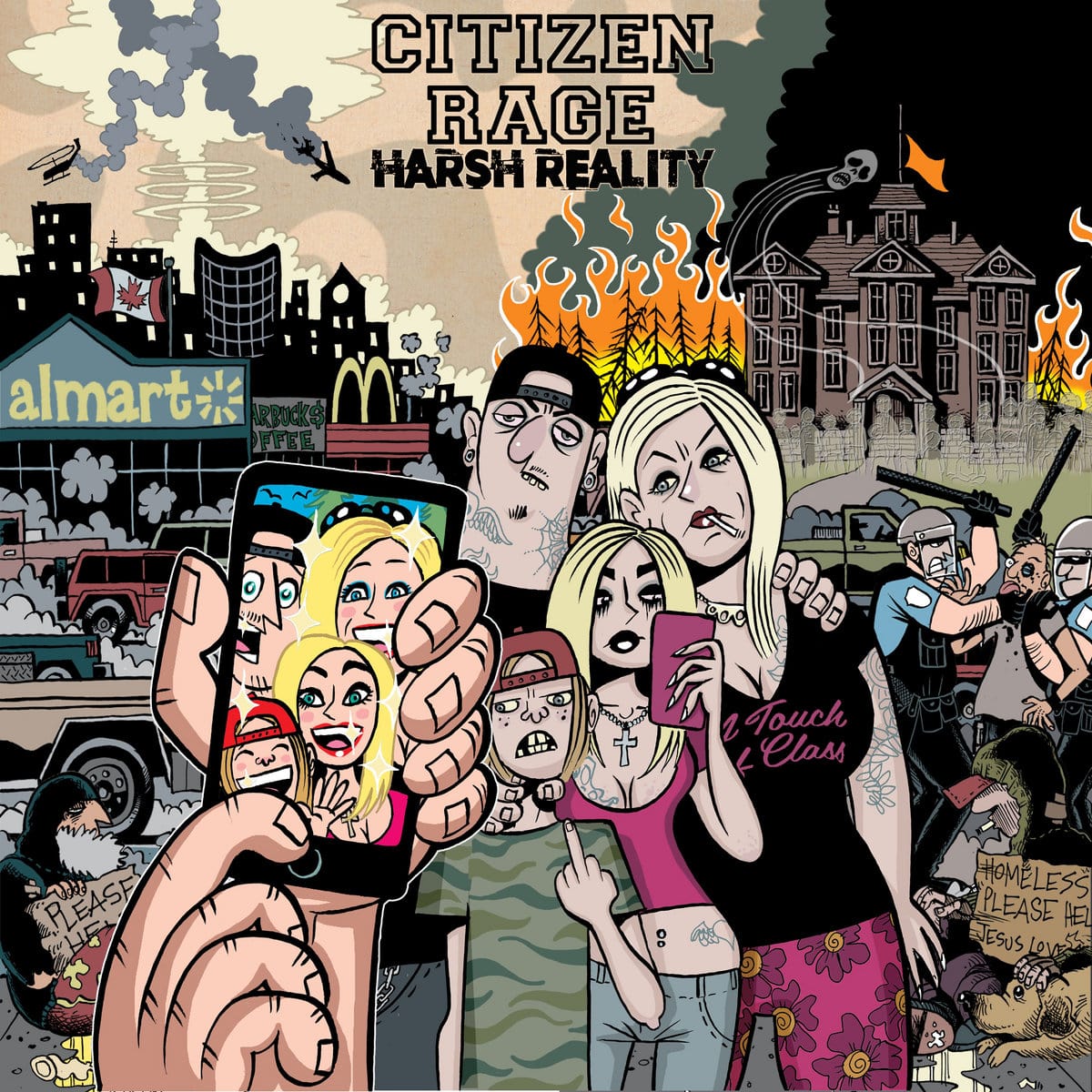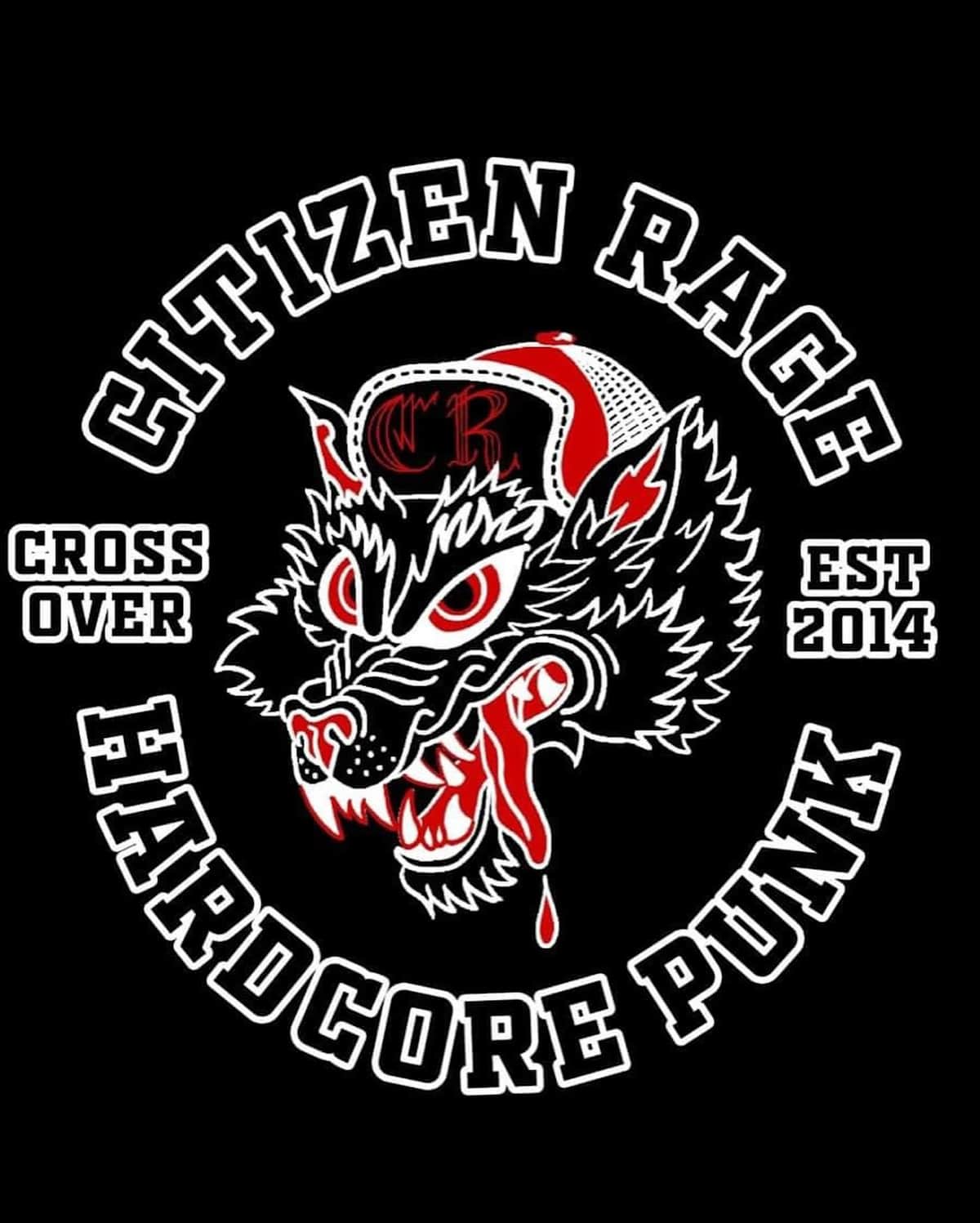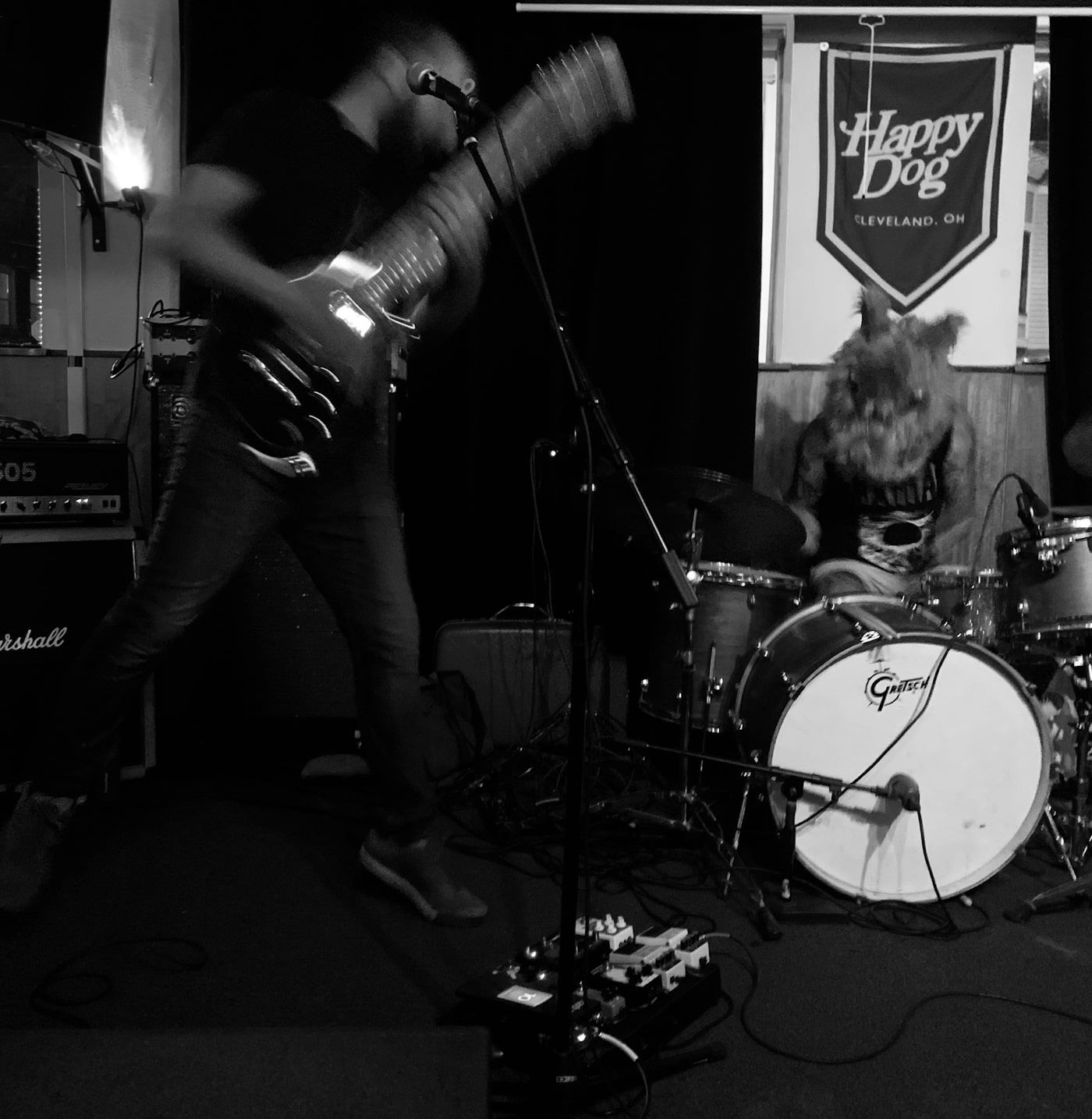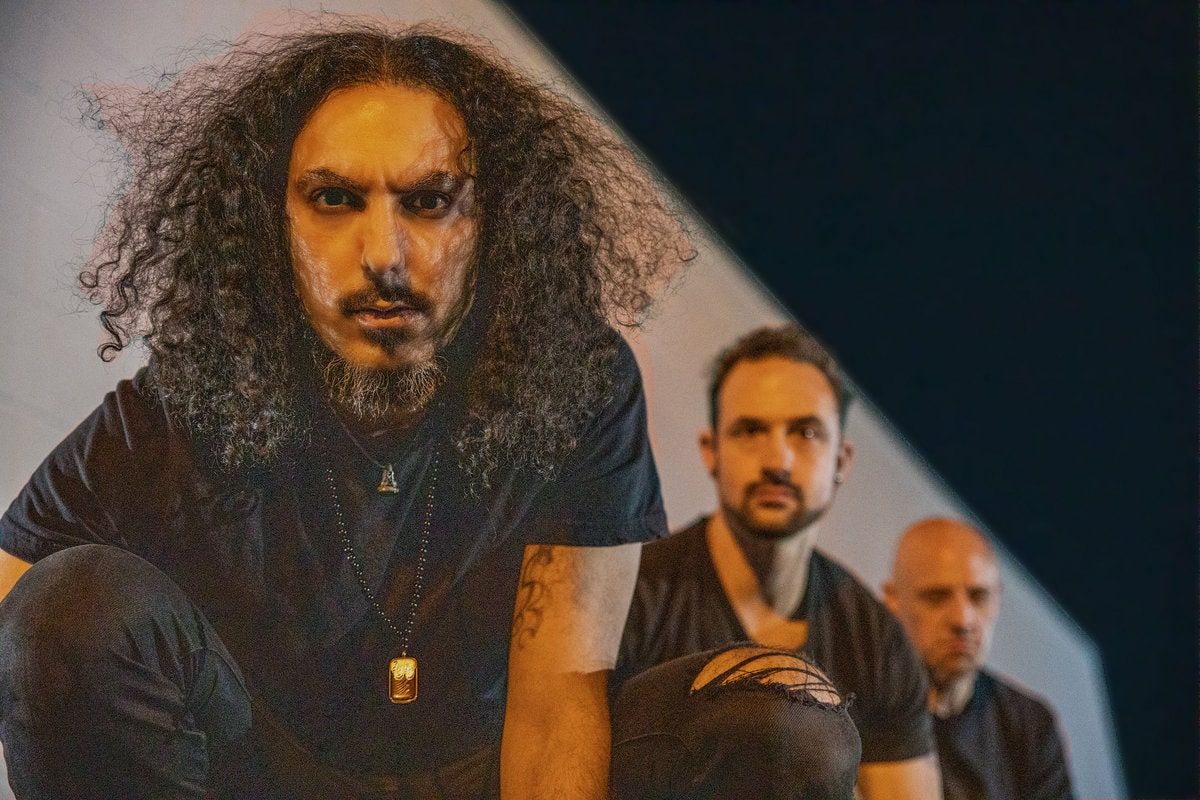In the throbbing heart of Calgary’s hardcore punk scene, Citizen Rage stands as a beacon of relentless energy, channelling societal frustrations into a sonic uproar that’s both a battle cry and a call to arms.
Since their formation in 2013, the band has carved a niche for itself, drawing from the rich tapestry of influences like Madball, and Good Riddance, while infusing the essence of modern acts like Ignite, Comeback Kid, and Get The Shot.
Their latest full-length release, “Harsh Reality,” is a reflection of their unyielding spirit. Released on the no-nonsense Toronto label Cursed Blessings Records comes as a mirror held up to society, unflinchingly reflecting its flaws and injustices.
In our interview below, Mikey Bastard, the bass player, brings a personal touch to the lyrics, weaving his own experiences with broader societal issues. From tackling the genocide against Indigenous people in “Given No Hope” to addressing mental health in tracks like “Look For Me in Darkness” and “Talk To Me,” the band doesn’t shy away from the harsh truths.
“Harsh Reality” serves as a platform, not only for venting frustrations but also for initiating conversations on issues often relegated to the shadows.
Your music is a fierce blend of hardcore punk with clear influences from bands like Madball. How do you balance paying homage to these seminal acts while ensuring Citizen Rage’s sound remains distinctly your own?
We all love hardcore and crossover and all that classic shit, but we also have very diverse tastes outside of that genre. Among the 4 of us theres a lot of metal, new pop, old pop, folk, blues, hip hop, etc.
Those tastes will often bleed into the stuff each of us brings to the table individually. Then when we come together as a group, and that gets mixed with the next guys tastes, it seems to come together into something that can transcend the basic labels.
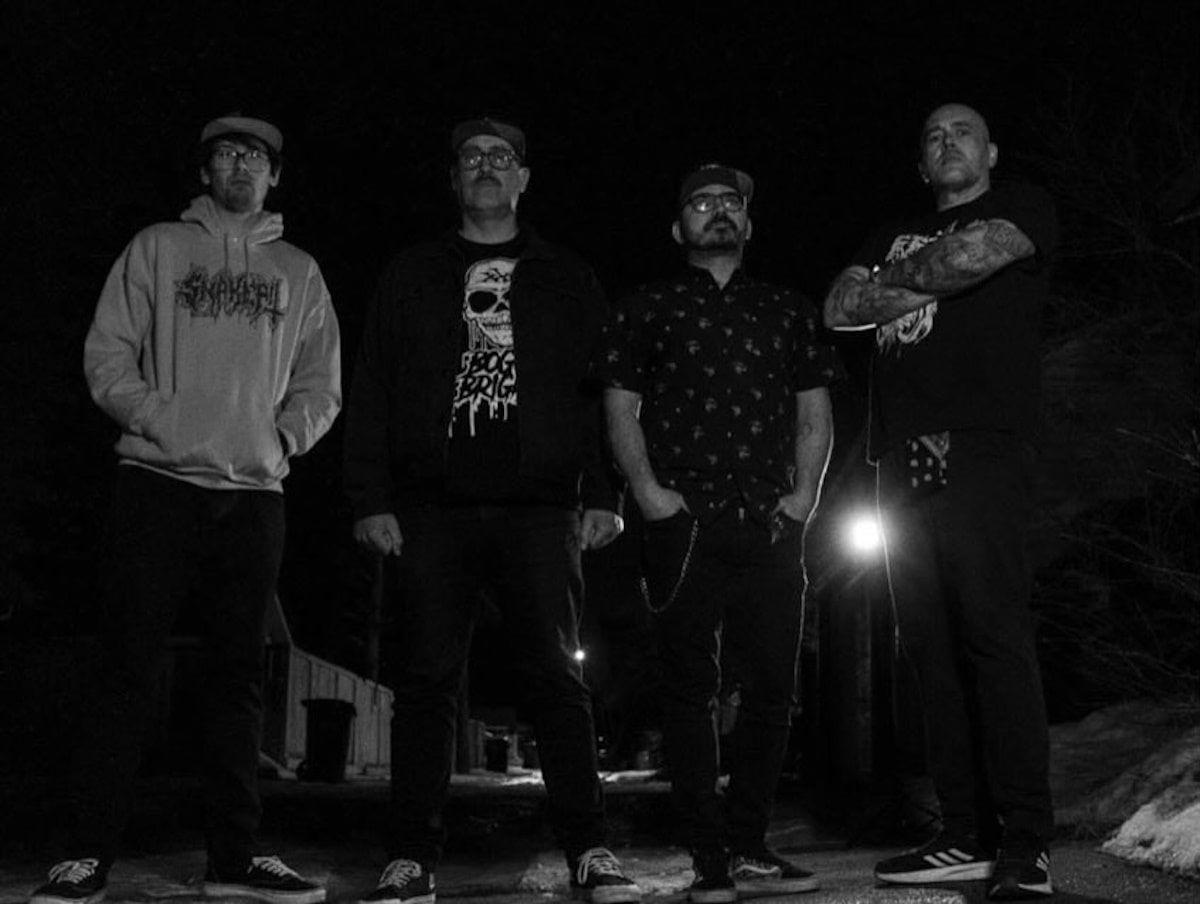
“Harsh Reality” tackles some heavy societal issues. Can you walk us through the creative process of turning these intense emotions and opinions into hardcore punk bangers?
Well, we look at music and songwriting as something thats not only cathartic for us, but also an opportunity to do something good, even if it is just whatever small amount of good a song can bring. So generally its just a matter of looking at all the horror and injustice around us, getting fucking angry about it, and channeling that anger into music and lyrics that allow us make the point we want to make. Sometimes its one single event that will get us working. Other times it can be conversations with our homies about certain issues that will get the fire lit underneath us.
The song “What’s It to You” is a powerful call to stand against hatred and bigotry, especially towards the LGBTQ2+ community. How do you approach writing lyrics that are both personal and universally resonant?
For me, I’ve never really considered a line between personal and universal when writing lyrics. I think it would be disingenous to try write to something that would be universally relatable. Writing lyrics is an intensely personal experience for me, and I find it flows best and gets the best results when I just let it out. Just get it written, and let it be what it needs to be. If it resonates with people, all the better. And it generally does, cause despite how personal the lyrics themselves are, the emotion and subjects that we write about are generally a lot more common than anyone wants to admit. But I dont think that universal relatability can be forced.
In “Given No Hope,” you address the genocide against Indigenous people. How does Citizen Rage aim to contribute to the conversation and awareness around this crucial issue through music?
The Indigenous genocide is one of historys greatest tragedies. It can be a tough line to walk when we’re writing about it, since we’re a bunch of white dudes, and we cant claim to speak for that community. But as white men, we do have a platform. So as much as we can, we want to shine that light, and not let that shit get buried, or downplayed.
It starts with speaking out.
Through words and songs and whatever you need to do. And amplify the indigenous voices whenever possible. Thats why we got Spike Jr in to do his part of that song. He’s a local indigenous singer songwriter and we wanted to share the track with him. We sent him our song and told him to write whatever he wanted to accompany it. He absolutely crushed it, and we wound up with that beautiful intorduction to the song. It was a very special honor to get him in there with us.
We just need to make sure everyone knows about this. We encourage people to educate themselves on the actual extent of the genocide, cause it goes way beyond what we learned in school, and whats currently being ackniwledged. We actually got the opportunity to get a tour around the grounds of the Kamloops residential school, where the first 215 graves were found. It was heartbreaking, but we learned so much. It was an incredibly humbling experience.
“One Last Time” touches on the universal experience of loss and longing. What role do personal experiences play in your songwriting, and how do you translate such intimate feelings into music?
I have the absolute utmost respect for the storyteller types of songwriters. I think it’s a gorgeous artform that has moved me to tears more times than i can count. But I absolutely can not do it. I dont know why. I have tried, and I just cant. It probably comes back to that disingenuous feeling. Which logically makes no sense, given my love and respect for other songwriters who do it. But I can only write that personal shit. So a lot of the time its just a matter of trying to process an event or circumstance in my universe.
My anxiety brain will just rail off words and phrases through my head at crazy speeds, and I just try to grasp on to some of that and write it into some cohesive lyrics.
“Walls” discusses the impacts of chronic pain and the healthcare system. How do you see music as a medium for shedding light on often overlooked health issues?
Its just about using the platform we’ve been given. A lot of things are ignored or swept under the rug. And we write these song to tell people who suffer from the same shit “hey, we hear you. We understand how much this sucks, and you arent the only one suffering.” Often theres comfort just in knowing you arent alone.
Mental health is a central theme in songs like “Look For Me in Darkness” and “Talk To Me”. What do you hope your listeners take away from these tracks about mental health awareness and support?
The biggest message in those songs is that no matter how alone you feel, you most definitely are not alone.
There is someone out there. Help is there, and there is absolutely no shame in asking for it. Mental health struggles are insanely common, but society has created this stigma around admitting you’re not ok. Like asking for help makes you weak. We say fuck that, and we say it fucking LOUDLY.
Theres no shame in needing help. If we keep screaming it into microphones, maybe people who hear us will be more comfortable asking when they need it. Everyone goes through dark places, and everyone needs a hand out of those dark places sometimes. If we all take care of eachother and help eachother, no one gets lost in those dark places.
“Fuck Your Face” is a candid take on cutting off toxic relationships. Is this song drawn from personal experiences, and how do you hope it resonates with your audience?
Definitely drawn from personal experiences. Most people have dealt with those toxic relationships, and some people dont cut them off. Be it friendships, romantic partners, even family members. We just want this song to let people know that you’re allowed to cut those people off. Theres nothing wrong with saying “this person is awful and treats me shitty and I’m done. Get out of my life.”
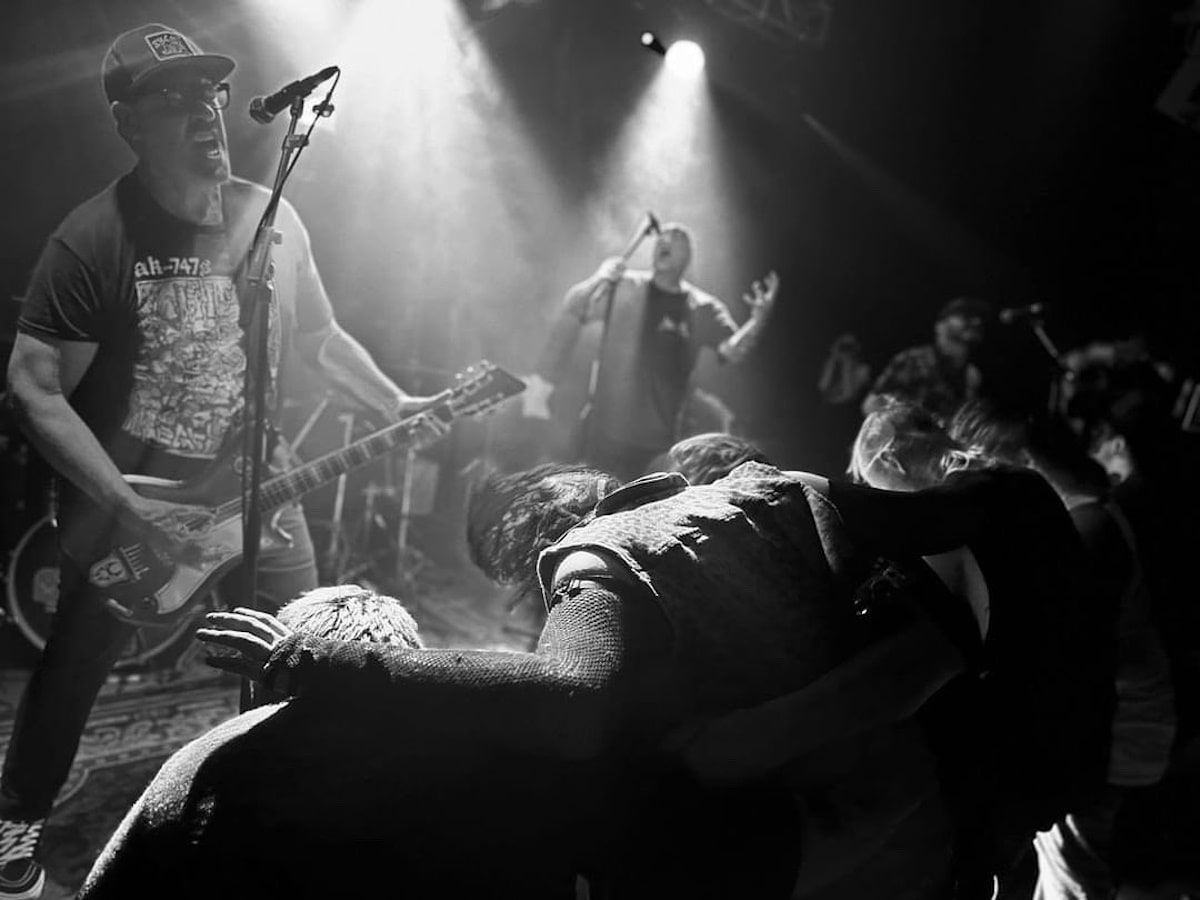
Covering The Rebel Spell’s “Breathe,” you bring your own interpretation to its message. What drew you to this song specifically, and how did you make it your own?
We felt that the lyrics really spoke to the idea that despite all the shitty garbage in the world right now, there is still hope. Thats big for us.
We come across as angry guys because of the songs, but we’re trying to channel that anger into a hopeful message. Like, maybe if we all just take a step back and take a breathe, we can live our own way and make some positive changes.
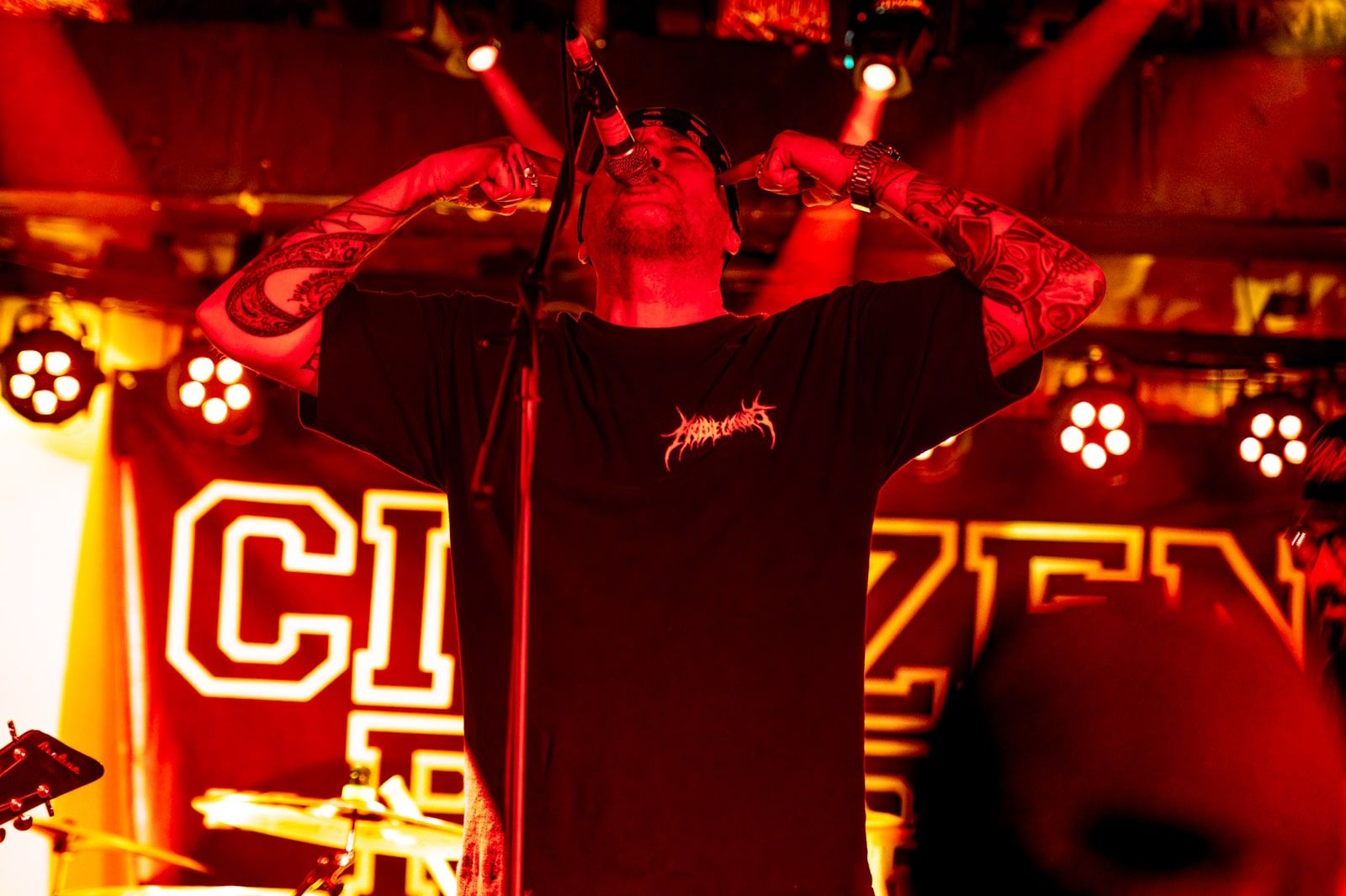
In “For Worse or Better,” you challenge societal norms and media influence. How do you think hardcore punk as a genre can influence or challenge mainstream narratives?
I think punk and its associated sub-genres were tailor-made for challenging the mainstream narrative. It gives a voice to whoever wants to stand up and say “this is bullshit and we arent gonna stand for it.” If enough people get angry, something will change.
– The Calgary music scene has been a crucible for various musical movements. How has the local scene influenced Citizen Rage, and are there any emerging artists or trends from Calgary in 2023 that you find particularly exciting?
Right now, its the work ethic of all these young bands coming out. Theres bands like Mixed Blame, The Break Ins and Tipless that are just busting ass. Doing the work getting out and creating great music and putting on amazing shows. Just bringing people together over punk rock. It seems like the scence kind of stagnated a bit in the last few years, and now these kids are just going apeshit for it and its amazing. It’s inspiring, because we see that the influence of bands of our age got these kids into punk rock, and now theyre right there with us. I love it. I cant wait to see what some of these bands do over the next couple years.
Touring and performing live are integral to hardcore. With your extensive touring experience, what have been some of the most memorable moments or lessons learned on the road?
The biggest lesson we learned when we started doing big tours was holy shit there is so much goddamn work involved. A lot of people think we’re just going on vacation. But in a country as vast as Canada, where the major markets are all a days drive apart, theres very very little time for fun.
It’s all a blue of driving, playing, moving gear in and out of venues and janky motels, getting very little sleep.
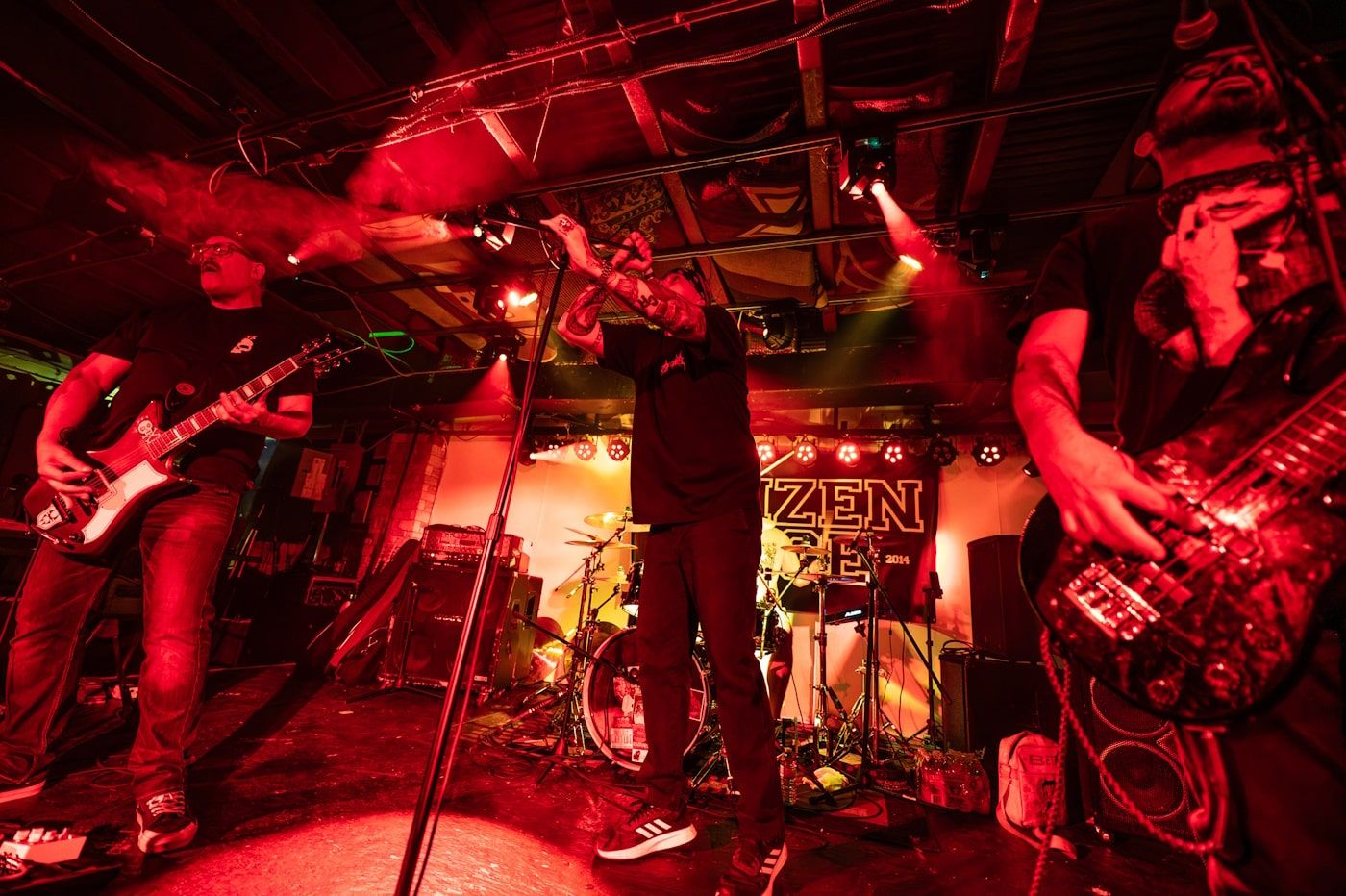
As for the most memorable touring experience, it was absolutely getting to visit the Kamloops Residential School site.
Like I said, it was fucking heartbreaking, but it was such a deeply moving experience for us. To have our local homie even offer to take us there was a big deal for us. And then to go through, and hear first hand stories of some of the horrors was just…..there’s not a lot of words for it.
It was an huge honor, and we were very humbled by the whole thing. There were a lot of tears and sobbing and I know I will definitely hold that memory forever.
Looking towards the future, how do you see Citizen Rage evolving, both musically and in terms of the messages you want to convey?
I dont know that the messages will change, but we are making a conscious effort to write some more fun shit. We’re always gonna be Citizen Rage, and we’re always going to fight for whats important to us and our community.
But there’s no reason there cant be the odd song about skateboarding or puppies or crying over a a pretty sunrise tossed into the setlist, too.



